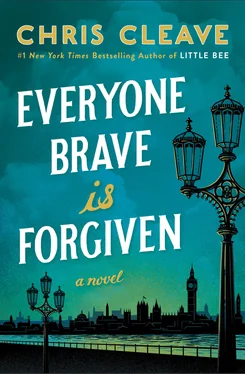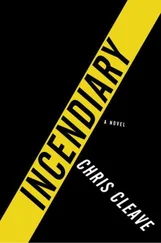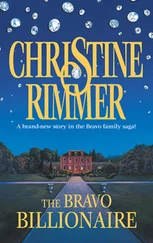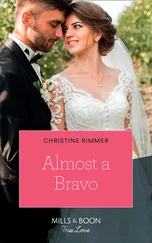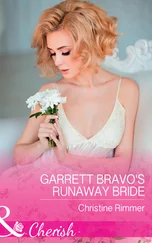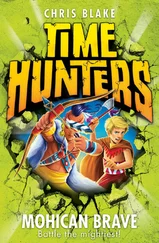How could one speak of it over lunch? After the hard planes and the hard tanks had come hard men in hard formations, banging their black boots in adamant time. A terrible hardness was how it had seemed to Alistair: a preternatural hardness that ordinary men had fled from and exceptional men had dashed themselves against and been ground into the soft French mud, the perfectly regular imprint of the hard iron tracks making no distinction between corpse and clay. He saw his friends’ faces crushed and flattened. He saw Tom’s, and Hilda’s, and Mary’s faces crushed and flattened. Good god — he was gripping his wineglass. Good god.
He made himself take a breath. “The Germans were just well organized. The next time we tangle with them, we’ll be organized too.”
Mary said, “You’re just like my father.”
Alistair was relieved to move on. “And what does your father do?”
“He’s a politician,” said Mary, stubbing out her cigarette and holding his eye with an irony that she might be inviting him to share — he couldn’t tell.
“He’s MP for the Wensum Valley,” said Tom.
Alistair said, “Well then I’m sure you know more than I do about the war picture.”
Mary inspected her nails. “I’m afraid they only tell us girls what we need to know: come here, look lively, bunk up, dig in.”
Alistair laughed, and Mary flashed him a prankish grin. How quickly she could turn in conversation.
Hilda, who seemed slightly at sevens with the whole exchange, shook their third wine bottle and proclaimed it empty. She stood, slightly unsteadily and with a clattering of cutlery to the floor.
“Oh come on, you lot, let’s jilt this dump and go somewhere with music.”
Alistair took care of the bill — it was true what they said: you couldn’t take it with you — and then they were out in the hot blue Saturday afternoon, in Hyde Park, Mary and Tom up ahead, arm in arm, and he bringing up the rear with Hilda, who shrugged her cardigan down off her shoulders and smiled up at the sun with half-closed eyes.
“Isn’t this grand?” she said, taking his arm. “It was stuffy in there.”
“Yes,” he said. “Grand.”
“Don’t you love the feeling you get when the sun comes out in London?”
“Are all the questions this easy?”
She laughed and leaned her head on his shoulder as they walked. The feeling of her at his side was pleasant, and now that they were outside and the first overpowering blush of her perfume had mellowed, she smelled warm and rather nice. Up ahead, Mary in her summer dress and white straw hat threw her head back and laughed at something Tom had said. Alistair felt unbearable anguish.
They bought ices from a kiosk and ate them as they walked. Mary slipped along with the carefree, long-limbed swing of someone on whom the present hour was neither too tight nor too loose.
Hilda was saying, “Can’t you just tell straight away, sometimes, when a person is all right?”
“You’re doing it again,” he said.
“And you’re noticing again, so we’re even.”
“Isn’t it fun to keep score?”
She poked him in the ribs. “See? Now you’re getting it.”
Over the streets, the barrage balloons bobbed nicely against a few small cotton-puff clouds. Hilda chatted happily. Wherever they were headed, Alistair guessed, it was likely to have wine.
The four of them wondered what they might do, since it was too early for dancing and too hot to keep strolling in the sun. A show would be the thing, but in theaterland nothing seemed to be beginning — it was four in the afternoon — and they bumped from place to place until Mary said they should go to the Lyceum. The minstrel troupe was playing there, as it had since forever, and she had a pupil, Zachary, whose father was a performer.
The hoardings had men in frock coats and hats, in blackface, cakewalking across the theater’s facade in their white spats and sticks. A fat white man in cork paint was calling the crowd in: “Come in dere, fine masters, you never seen such a show in all your life, you never heard such a fine music.”
“Must we?” said Tom. “The whole coons-with-canes thing?”
“Oh, but it’s done in a knowing way,” said Mary. “It’s a clin d’oeil .”
Tom looked to Alistair. “What do you say? It’s your leave, after all.”
Alistair, who had hardly been concentrating, understood that they were waiting on him. The caller, noticing the party’s hesitation, stepped up to them with an encircling, ushering gesture that made it seem rudeness not to let him escort them to the box office. His cork paint was unconvincing, a line of sunburned pink skin glistening between the blacking and his collar.
“Forget your cares for an hour,” he said, “as we transports you back through de magic of music an’ laughter to de peaceful world of de plantation, where dat good old darkie humor lifted spirits an’ lightened hearts.”
“Must you do that voice?” said Mary.
“Do let’s go in,” said Hilda. “It’ll be just like on the wireless.”
“Indeed it will be finer,” said the caller. “The BBC’s troupe ain’t got nothin’ on ours. Here you will hear ballads too bawdy for broadcast, airs too ’airy for the airwaves, an’ of course all of dis comes”—he addressed himself to the gentlemen of the party, and dropped the accent—“with your first drink on the house, from a selection of beers, wines and spirits that are not commonly available under the present circumstances.”
“Oh what the hell,” said Alistair.
“Oooh!” said Hilda, clapping her hands.
Tom gave them both a sardonic look.
“Oh Tom,” said Mary. “Must you spoil today?”
There was an edge in her voice that made Alistair look. He hadn’t noticed Tom spoiling anything, but perhaps he had lost the skill of noticing when days were spoiled by anything subtler than shrapnel. He wondered if another drink might help.
The theater was set out with tables in the stalls, and they took one close to the stage. It was agreeable down there, in front of the red velvet curtain, with the gilded columns of the proscenium catching warm glints from the curtain lights. Laughter from a dozen other tables rattled around, and above them conversation buzzed in the high circle.
Wine arrived just in time to stop everyone turning to gore. Another bottle followed, and the four of them relaxed in the soft pink glow of the table lamp. Alistair understood that his chair and Hilda’s must converge a little with every glass, as Tom’s and Mary’s were doing on the other side of the table, until without any particular moment having been marked they found themselves arranged as two couples. Hilda’s hand migrated to his knee, Alistair’s arm curled around her waist, and there was something sweet and attentive in the way they carefully ignored each other while their bodies achieved all of this on their own.
Instead they laughed especially hard at a joke Mary made, and brought fascinated interest to bear on a long anecdote that poor Tom was struggling to make go nowhere, until finally, as the house lights dimmed and all eyes turned to the stage, Hilda’s body was nestled against his. This thrilled and dismayed him at once. Through his uniform jacket Alistair could feel her quick heart. Its fluttering made him sad: such a tiny pump, the heart, and such an endless flood, life.
The audience fell silent and the curtain came up on darkness. Behind the stage a red spotlight made a thin sliver of light that rose until it became the uppermost part of a disc, and then a half circle, and then a whole circle rising over the stage. This was the sun, and as it rose it brightened from red to orange to white. The stage lights came up with it and illuminated the backdrop: a view out over London from the top of a hill, with spires gleaming and barrage balloons tethered above the sweep of the familiar city.
Читать дальше
